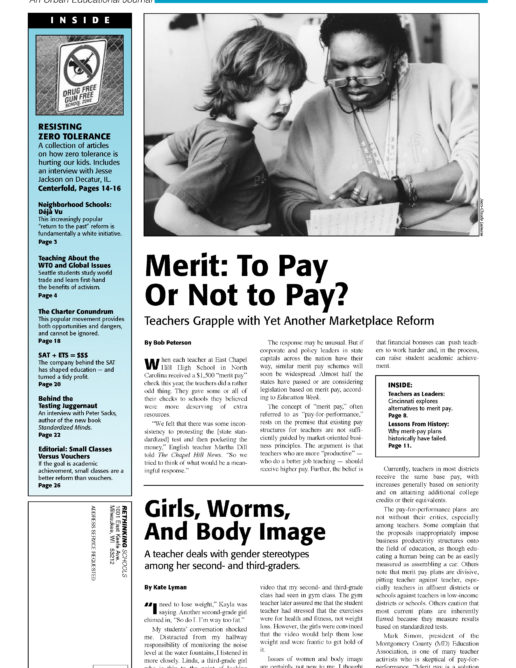Preview of Article:
Behind the Testing Juggernaut
There are some very powerful cultural forces that sustain this. We are a bottom line society. We have a cultural tendency to believe that any kind of process, however complex, can be reduced to a single number or measure. The test scores are a prelude to a very powerful ideology of individualism and competition in American society. People want those individual scores. Parents want those scores.
You can talk about this until you are blue in your face. You can explain in detail, these are the problems with it. These are the technical reasons why that individual score is very problematic. Many people do not want to hear that.
For example, when I was doing a radio program in southern California, callers who were comfortable in their lives did not want to be told there were problems with the validity of these tests or that the meritocracy might be broken. They just don’t want to believe the evidence. They did not want to hear that the predictive validity of a test like the SAT is around 16% in its ability to predict freshman grades in college. The GRE is like 6%. They would rather have a severely flawed number than no number at all.
Q: What do you see the misuse of standardized tests doing to education today?
The accountability, high-stakes test movement has created a carrot and stick mentality in our schools. The analogy of privatized managed healthcare holds here. There are financial incentives for doctors to spend less time on actual patient care because of the system of rewards and punishments they are working within. With managed care, HMOs stopped trusting physicians to make medical decisions for patients. To hold the bottom line, managed care turned increasingly to technicians and accountants to make medicaljudgments.
The same is true in public education. Elected officials are eviscerating professional educators of their responsibility to make educational decisions. Bureaucrats are increasingly making those decisions. Education departments are bribing teachers to raise test scores to meet performance objectives. Teacher salaries or jobs are on the line. Just as doctors may change their behavior in the HMO model, say by withholding unprofitable patient care, teachersin the high-stakes account ability model will often teach to thetest. This then transforms the very essence of what it means to be educated. Prepping for tests rewards certain limited kinds of thinking and penalizes deeper and more sustained reflection.</p

